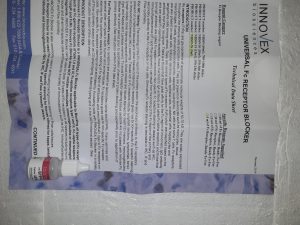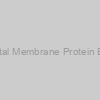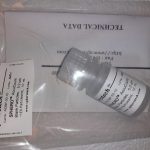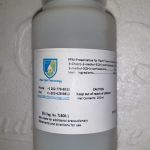Background: Induction chemotherapy (IC) adopted by concurrent chemoradiotherapy is the mainstay remedy for sufferers with locoregionally superior nasopharyngeal carcinoma. Nevertheless, some sufferers acquire little profit and expertise pointless poisonousities from IC. We meant to develop a gene-expression signature that may establish beneficiaries of IC.
Strategies: We screened chemosensitivity-related genes by evaluating gene-expression profiles of sufferers with short-term tumor response or nonresponse to IC (n = 95) utilizing microarray evaluation. Chemosensitivity-related genes had been quantified by digital expression profiling in a coaching cohort (n = 342) to acquire a gene signature. We then validated this gene signature within the medical trial cohort (n = 187) and an exterior impartial cohort (n = 240). Checks of statistical significance are 2-sided.
Outcomes: We recognized 43 chemosensitivity-related genes related to the short-term tumor response to IC. Within the coaching cohort, a 6-gene signature was developed that was extremely correct at predicting the short-term tumor response to IC (space beneath the curve [AUC] = 0.87, sensitivity = 87.5%, specificity = 75.6%).
We additional discovered that IC conferred failure-free survival advantages solely in sufferers within the profit group (hazard ratio [HR] = 0.54, 95% confidence interval [CI] = 0.34 to 0.87; P = .01) and never on these within the no-benefit group (HR = 1.25, 95% CI = 0.62 to 2.51; P = .53). Within the medical trial cohort, the 6-gene signature was additionally extremely correct at predicting the tumor response (AUC = 0.82, sensitivity = 87.5%, specificity = 71.8%) and indicated failure-free survival advantages. Within the exterior impartial cohort, related outcomes had been noticed.
Conclusions: The 6-gene signature will help choose beneficiaries of IC and lay a basis for a extra individualized therapeutic technique for locoregionally superior nasopharyngeal carcinoma sufferers.
Genetic Occasions and Signaling Mechanisms Underlying Schwann Cell Destiny in Growth and Most cancers
On this overview, we describe Schwann cell growth from embryonic neural crest cells to terminally differentiated myelinated and nonmyelinated mature Schwann cells. We concentrate on the genetic drivers and signaling mechanisms mediating selections to proliferate versus differentiate throughout Schwann cell growth, highlighting pathways that overlap with Schwann cell growth and are dysregulated in tumorigenesis.
We conclude by contemplating how our data of the occasions underlying Schwann cell growth and mouse fashions of schwannoma, neurofibroma, and malignant peripheral nerve sheath tumor can inform novel therapeutic methods for sufferers with cancers derived from Schwann cell lineages.

stjosephs-hospital
The event and controversy of aggressive endogenous RNA speculation in non-coding genes
As a momentous post-transcriptional regulator, microRNAs (miRNAs) are attracting increasingly more consideration. The classical miRNAs regulated mechanism exhibits it binds to the targets’ 3’UTR thus play the position in post-transcription.
In the meantime, single miRNA can goal a number of genes, so these ought to compete to bind that miRNA. Vice versa, single gene can sponge mass of miRNAs as effectively. Thus the aggressive endogenous RNAs (ceRNAs) speculation was put ahead in 2011.
The ceRNA speculation has made large achievements, particularly in non-coding genes, which together with lengthy non-coding RNAs (lncRNAs), circle RNAs (circRNAs) and pseudogenes, even viral transcripts. It additionally contributed enormously to epigenetics growth.
Nevertheless, an rising variety of controversies have occurred with applause. Based mostly on this case, this overview introduces one thing in element concerning the ceRNAs speculation achieved in lncRNAs,circRNAs, pseudogenes and viral transcripts, respectively. In the meantime, it additionally covers controversy of the ceRNAs speculation
Conserved Patterns in Developmental Processes and Phases, Slightly than Genes, Unite the Extremely Divergent Bilateria
- Bilateria are the predominant clade of animals on Earth. Regardless of having developed all kinds of physique plans and developmental modes, they’re characterised by widespread morphological traits. By default, researchers have tried to hyperlink clade-particular genes to those traits, thus distinguishing bilaterians from non-bilaterians, by their gene content material.
- Right here we argue that it’s fairly organic processes that unite Bilateria and set them other than their non-bilaterian sisters, with a much less complicated physique morphology. To check this speculation, we in contrast proteomes of bilaterian and non-bilaterian species in an elaborate computational pipeline, aiming to seek for a set of bilaterian-specific genes. Regardless of the restricted confidence of their bilaterian specificity, we nonetheless detected Bilateria-specific practical and developmental patterns within the sub-set of genes conserved in distantly associated Bilateria.
- Utilizing a novel multi-species GO-enrichment methodology, we decided the practical repertoire of genes which can be extensively conserved amongst Bilateria. Analyzing expression profiles in three very distantly associated mannequin species- melanogaster, D. rerioand C. elegans-we discover attribute peaks at comparable phases of growth and a delayed onset of expression in embryos. Particularly, the expression of the conserved genes seems to peak on the phylotypic stage of various bilaterian phyla.
- In abstract, our examine illustrate how growth connects distantly associated Bilateria after thousands and thousands of years of divergence, pointing to processes doubtlessly separating them from non-bilaterians. We argue that evolutionary biologists ought to return from a purely gene-centric view of evolution and place extra concentrate on analyzing and defining conserved developmental processes and intervals.
The efficacy of chemotherapeutic drug mixtures could also be predicted by concordance of gene response to the one brokers
Figuring out the expression of genes in response to totally different lessons of chemotherapeutic medication might permit for a greater understanding as to which can be used successfully together. Within the current examine, the human colorectal most cancers cell line HCT116 was cultured with equi-active concentrations of a collection of anti-cancer brokers.
Gene expression profiles had been then measured by whole-genome microarray. Though every drug induced a singular signature of gene expression in tumour cells, there have been marked similarities between sure medication, even in these from totally different lessons. For instance, the antimalarial agent artesunate and the platinum-containing alkylating agent, oxaliplatin, produced a really related mRNA expression sample in HCT116 cells with ~14,000 genes being affected by the 2 medication in the identical approach.
Moreover, the general correlation of gene responses between two brokers may predict whether or not their use together would result in a larger or lesser impact on cell quantity, decided experimentally, than predicted by single agent experiments. The outcomes indicated that even when working by way of totally different mechanisms, combining medication that provoke the same transcriptional response might represent the best choice for figuring out drug-combination methods for the remedy of most cancers.
 Biospin Total RNA Extraction Kit II |
|||
| TRI-C80S1 | TRI Biotech | 50T | EUR 277.2 |
 Rapid Animal Total RNA Extraction Kit |
|||
| AT4181 | Bio Basic | 50Preps | EUR 105.67 |
 Rapid Animal Total RNA Extraction Kit |
|||
| AT4182 | Bio Basic | 250preps | EUR 242.7 |
 Total Protein Extraction Assay Kit |
|||
| E-BC-E002-100Assays | Elabscience Biotech | 100 Assays | EUR 180 |
 Total Protein Extraction Assay Kit |
|||
| E-BC-E002-50Assays | Elabscience Biotech | 50 Assays | EUR 1 |
 Total Protein Extraction Assay Kit |
|||
| E-BC-E002-each | Elabscience Biotech | each | Ask for price |
 ExKine™ Total Protein Extraction Kit |
|||
| KTP3006-each | Abbkine | each | Ask for price |
 ExKine™ Total Protein Extraction Kit |
|||
| KTP3006-200T | Abbkine | 200 T | EUR 249 |
|
Description: Abbkine ExKine™ Total Protein Extraction Kit is for lysis of mammalian cells and tissues. |
|||
 ExKine™ Total Protein Extraction Kit |
|||
| KTP3006-50T | Abbkine | 50 T | EUR 109 |
|
Description: Abbkine ExKine™ Total Protein Extraction Kit is for lysis of mammalian cells and tissues. |
|||
 Total Protein Extraction Kit: TM Buffer |
|||
| K3011010-1 | Biochain | 13 ml | EUR 142 |
 Biospin Plant Total RNA Extraction Kit |
|||
| TRI-C65S1 | TRI Biotech | 50T | EUR 340.2 |
 BioFast Simply P Total RNA Extraction Kit |
|||
| TRI-C60S1 | TRI Biotech | 50T | EUR 327.6 |
) Histone/DNA Binding Protein Extraction Kit (cells) |
|||
| P514-25 | 101Bio | - | Ask for price |
) Histone/DNA Binding Protein Extraction Kit (cells) |
|||
| P514-4 | 101Bio | - | Ask for price |
) Histone/DNA Binding Protein Extraction Kit (cells) |
|||
| P514-50 | 101Bio | - | Ask for price |
 IBI ISOLATE TOTAL EXTRACTION REAGENT KIT |
|||
| IB47600 | IBI Scientific | 4ML | EUR 30.42 |
 IBI ISOLATE TOTAL EXTRACTION REAGENT KIT |
|||
| IB47601 | IBI Scientific | 100ML (HAZ) | EUR 191.1 |
 IBI ISOLATE TOTAL EXTRACTION REAGENT KIT |
|||
| IB47602 | IBI Scientific | 200ML (HAZ) | EUR 344.67 |
 3-min Bacterial Total Protein Extraction Kit |
|||
| P512L | 101Bio | - | Ask for price |
) Total RNA Extraction Kit (For Tissue and Cell) |
|||
| MBS8245108-20Preps | MyBiosource | 20Preps | EUR 175 |
) Total RNA Extraction Kit (For Tissue and Cell) |
|||
| MBS8245108-50Preps | MyBiosource | 50Preps | EUR 240 |
) Total RNA Extraction Kit (For Tissue and Cell) |
|||
| MBS8245108-5x50Preps | MyBiosource | 5x50Preps | EUR 995 |
 ExKine™ Total Membrane Protein Extraction Kit |
|||
| KTP3004-each | Abbkine | each | Ask for price |
 ExKine™ Total Membrane Protein Extraction Kit |
|||
| KTP3004-200T | Abbkine | 200 T | EUR 249 |
|
Description: Abbkine ExKine™ Total Membrane Protein Extraction Kit provides a simple, rapid and reproducible method to extract total membrane proteins. |
|||



